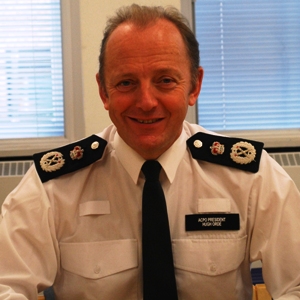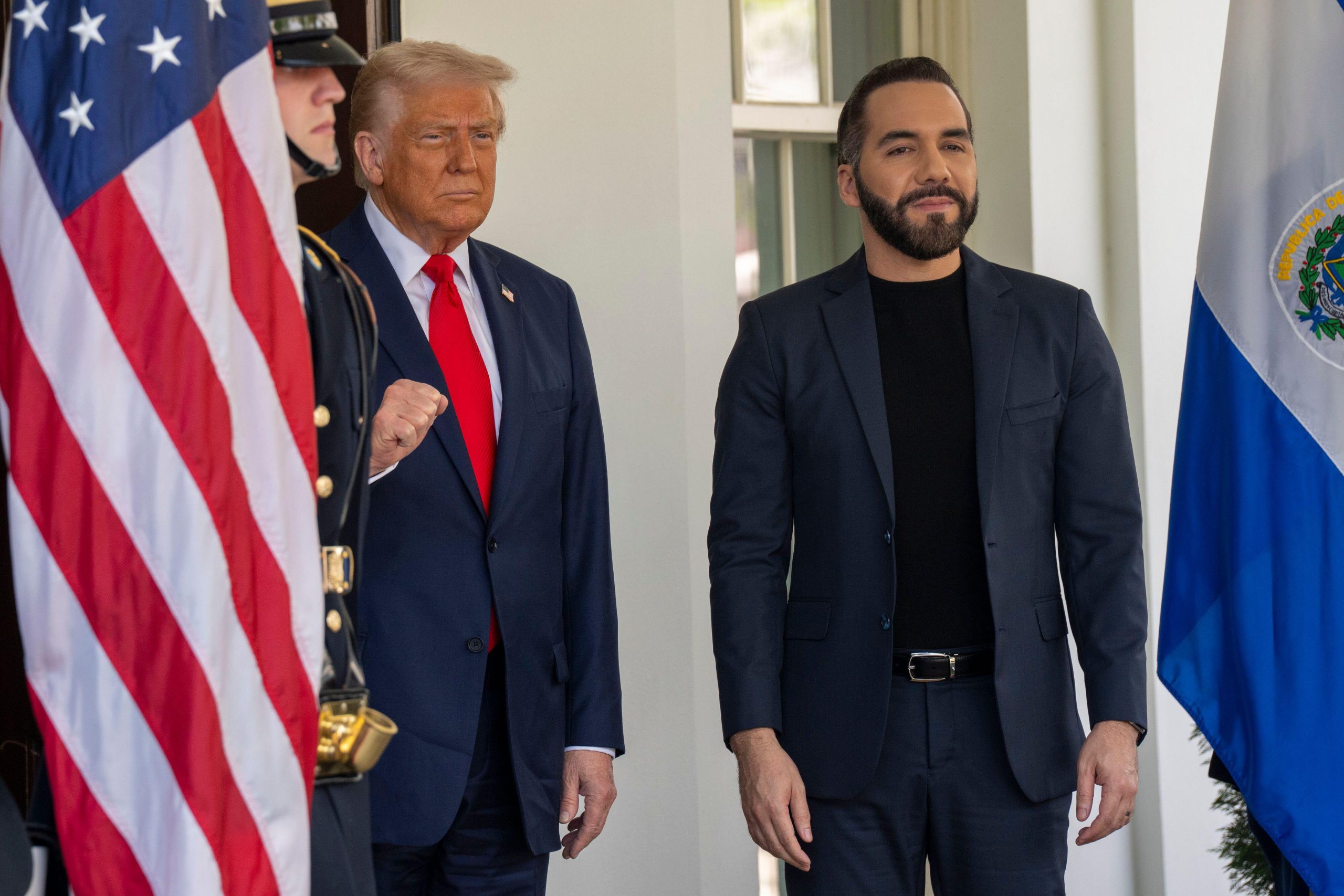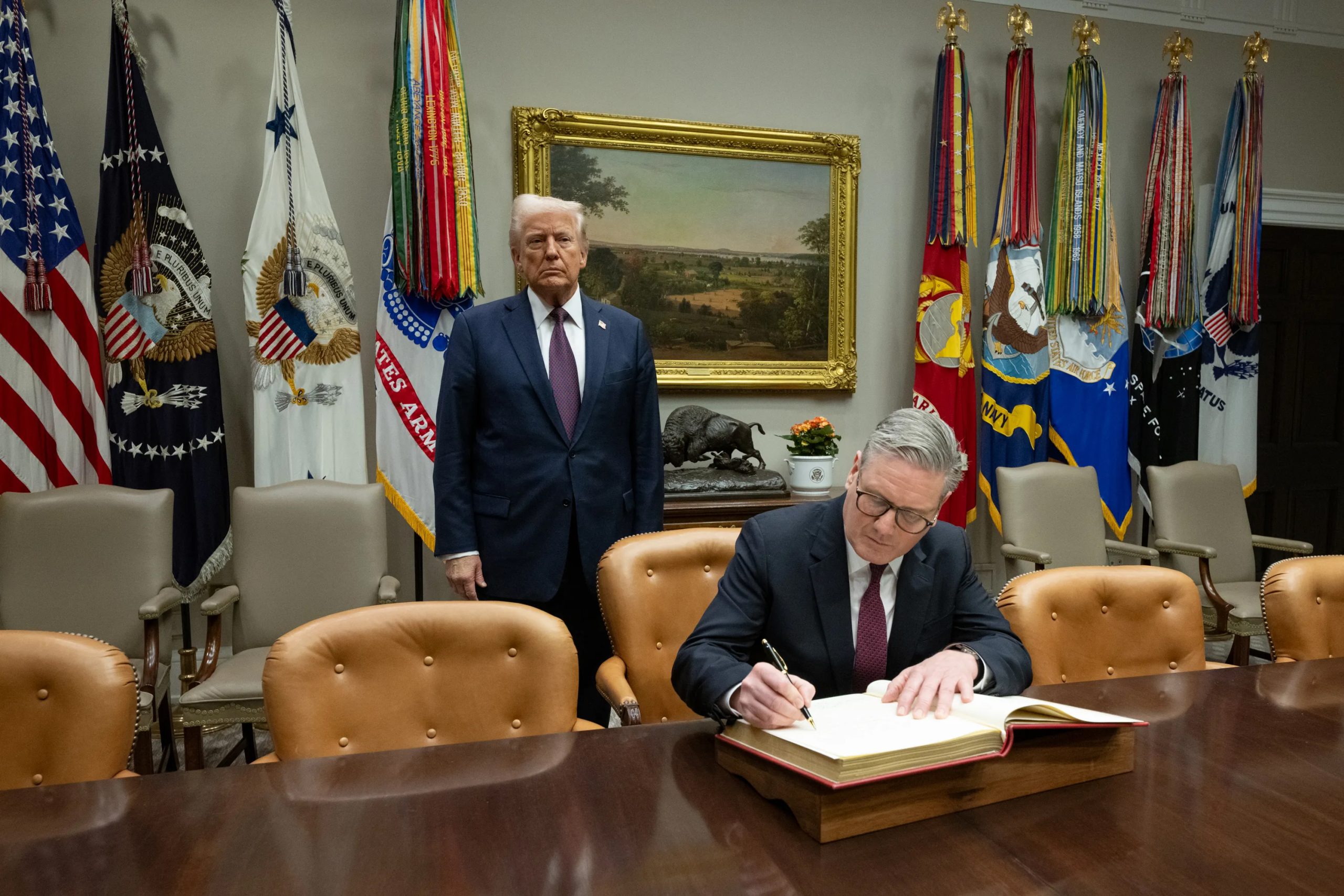 Index on Censorship’s Kirsty Hughes talks to Sir Hugh Orde, one of the UK’s most senior police officers, about protest, public order and politics
Index on Censorship’s Kirsty Hughes talks to Sir Hugh Orde, one of the UK’s most senior police officers, about protest, public order and politics
Sir Hugh Orde is one of the most senior police figures in the UK. As President of the Association of Chief Police Officers (ACPO), a post he took up in 2009, Sir Hugh coordinates strategic policing and police development across the police forces of England, Wales and Northern Ireland. Before that he was Chief Constable of the Northern Ireland Police Service for 7 years, overseeing the implementation and follow up of the Good Friday Agreement.
Sir Hugh was pipped at the post in 2011 as a candidate to be the Metropolitan Police Commissioner, by Sir Bernard Hogan-Howe. Some suggest Sir Hugh’s blunt style may have cost him political support — though he is often labelled the police’s favourite police officer.
Sporting a pink striped tie against a blue striped shirt, Sir Hugh is welcoming, friendly and loquacious in his rather austere office just up the road from Scotland Yard in central London. And as we talk, he is indeed blunt. Some of his comments have a hard edge and he gives the impression of a man who takes no hostages but has a sharp political sense.
Sir Hugh describes ACPO as “the glue that holds national policing together”. From briefing newly elected police commissioners to coordinating national police responses to terrorist threats, it is a wide and demanding brief, not least as chief constables all volunteer, on top of their day job, to lead different areas for ACPO where national coordination is needed. As Sir Hugh told the Leveson Inquiry: “In the absence of a federal model of policing [ACPO] provides a voluntary structure to secure national agreements.”
Human rights and free speech
In the UK, the police are, in theory, part of a system that defends our individual and collective human rights — including the right to free speech, and the freedom of assembly and association. Yet the police’s commitments to human rights in practice is, inevitably questioned as real life events unfold. Meanwhile, parts of the British media and frequently suggest our human rights laws and commitments are undermining common sense policing and democratic decision-making, or risking our security.
Sir Hugh is clear and liberal-sounding on the overarching principle. Free expression and human rights are, he insists, “a function of good policing…human rights are not an impediment to effective policing.”
But there’s a hard underpinning to this view: “Those who want cheap tilts at the Human Rights Act paint it as an impediment; it’s the opposite. We use lethal force — compliant with article two — so it’s flawed to say it’s an impediment.” Article two sets out the right to life, but also allows police to use no more force than “absolutely necessary” to arrest someone or in tackling a riot. This can cover cases where deaths occur. Sir Hugh’s is not a soft defence of the Human Rights Act.
Nor does he see security and police openness in providing information necessarily as trade-offs: “The biggest national threats without question are cybercrime and terrorism” he says. But he thinks transparency, as far as possible, is part of tackling these threats “so you only don’t talk [about them] if you absolutely can’t.”
The harder challenge in policing free expression is where there may be calls to constrain free speech or the right to protest. There are a number of laws that give police the option or even the requirement to step in — some, such as section 5 of the Public Order Act are broadly phrased and mean the police have a lot of leeway (although ‘insulting’ language is now to be taken out of the Act). Sir Hugh admits frankly that where and whether to constrain rights can be a “nightmare – the first default is to call the police”. He underlines the importance of discretion in policing and argues “cops tolerate a lot”. He adds: “if we enforced everything, there would be no cops on the streets.”
Having faced the challenges in Northern Ireland of how to manage the right to protest in the face of major community tensions, Sir Hugh is clear that these rights are not absolute: “These are conditional rights not unconditional rights — you can’t just ride roughshod over others….you have to manage that very difficult territory.” When pushed he admits that the tactic of kettling “is pretty hard edged” but adds: “We have used containment in football stadium for decades, and no one complained.”
Public sensitivity to offence is, Sir Hugh thinks, on the rise not least in the context of some recent high profile prosecutions of ‘offensive’ speech on social media: “The expectation of citizens that the police will act if they are insulted has increased, especially if it’s personal and hurtful.” He thinks the interim guidelines issued last December by the Director of Public Prosecutions Keir Starmer, which aim to rein in the number of such prosecutions, will be “helpful” and does not want police time taken up policing “every insulting comment.”
But laws, he insists, are the realm of government: “We don‘t lobby” he says. “We act on laws as the government creates them.”
He says frontline officers “have never been so well trained” and do understand their responsibilities in defending and protecting human rights, and using discretion and judgement. But he thinks “with 20 per cent cuts, training tends to go” – and describes the cuts facing the police as their “biggest challenge”.
Costs can be a key issue for free expression; if there’s a major protest against a play or an exhibition, the policing that may be needed isn’t necessarily provided free. But should we have to pay to have our human rights defended? “As a chief constable” says Sir Hugh “I’d be prepared to have a conversation about it. But it’s not necessarily wrong for someone dealing with a commercial event to make a contribution if others are put at risk because we shift resources.” We have to balance, he says, the human rights principles of the right to be protected with ever more limited resources.
Police and the Press
Sir Hugh is clearly pleased with the findings of Lord Justice Leveson’s inquiry that there were some wrong judgements and decisions by police but no pervasive corruption or lack of integrity. He bristles slightly at the suggestion Leveson let the police off lightly, saying Leveson is a judge who “follows evidence and there is none to leap from individual actions to root and branch failure to police media relations.”
He also argues that most police-media relations have been for the most part unproblematic: “A lot of cops gave evidence to Leveson and the vast majority described an utterly proper professional relationship with the press…and meeting to discuss over tea or a pint of beer is OK, proper and proportionate.” He is not concerned with Leveson’s suggestion that there shouldn’t be off the record briefings: “I think it [‘off the record’] became misunderstood as secret, clandestine, and Leveson was trying to take the heat out of it.” But he insists that there will be briefings that are not for the public or for background context.
He has some sharp words for the press too, emphasising the difference in public trust ratings for police compared to journalists. “If you look at the polls…you see the public feel quite powerless.” The police, he says, deal with victims, such as “people dealing with massive grief and utterly unused to the media” and if there is a public interest in intrusion that is, he thinks, for journalists to justify. But if media behaviour is “horrendous, unfair, then the public must have a right to complain.”
In the end, Sir Hugh thinks the United Kingdom is doing OK compared to other countries in the world: “If you walk outside and talk on the street corner you are very unlikely to get arrested —- isn’t that the point?” The British model, he believes, is built around tolerance, “though that’s not to say sometimes there is not a hard edge.”
Tolerance with a hard edge — perhaps a good summary of Sir Hugh’s approach to policing our rights. But where that hard edge is placed and how it is interpreted on the ground will continue to be a central question for whether free expression and other rights are adequately defended by the police.
Kirsty Hughes is Chief Executive of Index on Censorship




